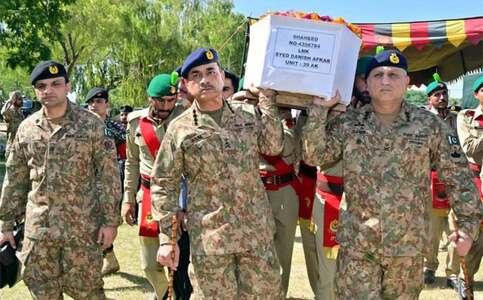WASHINGTON, May 7: US President George W. Bush telephoned Indian Prime Minister Manmohan Singh on Monday to discuss a nuclear deal that seems to have run into trouble.
White House spokesman Tony Snow told reporters at a briefing that the two leaders “welcomed the recent progress in the civil nuclear cooperation initiative. They also agreed on the need for negotiations to conclude the bilateral agreement on peaceful nuclear cooperation.”
State Department spokesman Sean McCormack told reporters earlier that the United States wants “political level” talks with India for removing differences over the nuclear deal the two sides are trying to conclude before a change of government in Washington.
Last week, the US and India launched a diplomatic offensive to save the deal that the two countries hope can lead to a greater strategic partnership between them.
Indian Foreign Secretary Shiv Shanker Menon was in Washington on April 30 and May 1 for talks with Undersecretary of State Nicholas Burns, the chief US negotiator for the nuclear deal.
Mr Burns is scheduled to visit New Delhi later this month for more talks.
Last week’s talks revived the hopes for a successful conclusion, with Indian diplomats saying problem issues like the treatment of spent fuel and India’s right to test nuclear weapons could be overcome.
But soon after the talks, seven US senators wrote to Mr Singh telling him to reconsider India’s relations with Iran if he wants the nuclear deal and a strategic partnership with the US.
Washington is trying to isolate Tehran over its disputed nuclear programme and alleged support for terrorism but India does not want the US to determine its foreign policies in return for a nuclear deal.
New Delhi also wants the Bush administration to rewrite key elements of the law approved by the US Congress last year.
Indian negotiators are contesting a clause which states that the United States would withdraw civil nuclear fuel supplies and equipment if India breached its unilateral moratorium on nuclear testing. India also wants the US not to place restrictions on its ability to produce weapon-grade nuclear fuel.
The Bush administration said that removing such differences would require the US to change its non-proliferation laws and it was unwilling to do so.
“It’s an issue that’s covered by our law and ... we’re not going to change our laws,” said Mr McCormack.














































Dear visitor, the comments section is undergoing an overhaul and will return soon.